CCNP – 350-401 ENCOR Course







CCNP – 350-401 ENCOR Course
The Cisco Certified Network Professional (CCNP) Enterprise certification, specifically the 350-401 ENCOR (Implementing Cisco Enterprise Network Core Technologies) course, is tailored to help IT professionals develop advanced capabilities in managing and optimizing enterprise network infrastructures using Cisco technologies.
If you’re seeking the best CCNP 350-401 ENCOR training in Vadodara, this course provides an in-depth curriculum that covers essential areas such as network infrastructure, security, automation, virtualization, and network assurance. Designed with practical application in mind, it enables learners to build scalable, secure, and reliable enterprise networks aligned with today’s dynamic business requirements.
Participants engage in real-world labs using Cisco routers, switches, and other networking equipment, ensuring they gain hands-on experience in troubleshooting, configuration, and applying best practices in enterprise network design. This course is ideal for professionals looking to enroll in a CCNP 350-401 ENCOR certification course in Vadodara, aiming to boost their technical expertise and credentials.
Additionally, the program supports those preparing for the CCNP 350-401 ENCOR coaching classes in Vadodara, offering structured learning and expert instruction to help participants master Cisco’s core technologies. Completion of this course not only validates your networking skills but also significantly enhances your career prospects in the IT industry.
What will I learn?
- Understand network fundamentals and technologies, including routing, switching, and wireless networking.
- Implement advanced routing and switching protocols, including OSPF, EIGRP, BGP, and STP.
- Deploy network services, such as DHCP, DNS, and SNMP, to support enterprise networks.
- Configure and troubleshoot network security measures, including ACLs, VPNs, and firewall policies.
- Knowledge of network virtualization concepts and technologies, including virtual network
- Implementing network security with access control policies, wireless security features, and infrastructure security.
Requirements
- Basic understanding of networking protocols, such as IP addressing and subnetting.
- Familiarity with Ethernet and TCP/IP networking.
- Foundational knowledge of Cisco networking and the concepts involved in LAN, WAN, and wireless networks.
- Some experience with managing network devices (switches, routers, etc.) using Cisco's command-line interface (CLI).
- Basic knowledge of network security principles and best practices.
- Understanding of the fundamentals of wireless networking.
- Awareness of the importance of network virtualization and network services such as DNS, DHCP, SNMP, etc.
- Prior experience with any programming or scripting language is helpful but not mandatory.
CCNP 350-401 ENCOR Course Content
- Domain 1: Architecture
- Explain the different design principles used in an enterprise network:
- Enterprise network design such as Tier 2, Tier 3, and Fabric Capacity planning
- High availability techniques such as redundancy, FHRP, and SSO)
- Analyze design principles of a WLAN deployment:
- Wireless deployment models (centralized, distributed, controller-less, controller-based, cloud, remote branch)
- Location services in a WLAN design
- Differentiate between on-premises and cloud infrastructure deployments
- Explain the working principles of the Cisco SD-WAN solution:
- SD-WAN control and data planes elements
- Traditional WAN and SD-WAN solutions
- Explain the working principles of the Cisco SD-Access solution:
- SD-Access control and data planes elements
- Traditional campus interoperating with SD-Access
- Describe concepts of wired and wireless QoS:
- QoS components
- QoS policy
- Differentiate hardware and software switching mechanisms:
- Process and CEF
- MAC address table and TCAM
- FIB vs. RIB
- Domain 2: Virtualization
- Describe device virtualization technologies:
- Hypervisor type 1 and 2
- Virtual machine
- Virtual switching
- Configure and verify data path virtualization technologies:
- VRF
- GRE and IPsec tunneling
- Describe network virtualization concepts:
- LISP
- VXLAN
- Domain 3: Infrastructure
- Layer 2:
- Troubleshoot static and dynamic 802.1q trunking protocols
- Troubleshoot static and dynamic EtherChannels
- Configure and verify common Spanning Tree Protocols (RSTP and MST)
- Layer 3:
- Compare routing concepts of EIGRP and OSPF (advanced distance vector vs. linked state, load balancing, path selection, path operations, metrics)
- Configure and verify simple OSPF environments, including multiple normal areas, summarization, and filtering (neighbor adjacency, point-to-point, and broadcast network types, and passive-interface)
- Configure and verify eBGP between directly connected neighbors (best path selection algorithm and neighbor relationships)
- Wireless:
- Describe Layer 1 concepts, such as RF power, RSSI, SNR, interference noise, band and channels, and wireless client device capabilities
- Describe AP modes and antenna types Describing access point discovery and join process (discovery algorithms, WLC selection process)
- Describe the main principles and use cases for Layer 2 and Layer 3 roaming
- Troubleshoot WLAN configuration and wireless client connectivity issues
- IP Services:
- Describe Network Time Protocol (NTP)
- Configure and verify NAT/PAT
- Configure first hop redundancy protocols, such as HSRP and VRRP
- Describe multicast protocols, such as PIM and IGMP v2/v3
- Domain 4: Network Assurance
- Diagnose network problems using tools such as debugs, conditional debugs, trace route, ping, SNMP, and syslog
- Configure and verify device monitoring using syslog for remote logging
- Configure and verify NetFlow and Flexible NetFlow
- Configure and verify SPAN/RSPAN/ERSPAN
- Configure and verify IPSLA
- Describe Cisco DNA Center workflows to apply network configuration, monitoring, and management
- Configure and verify NETCONF and RESTCONF
- Domain 5: Security
- Configure and verify device access control:
- Lines and password protection
- Authentication and authorization using AAA
- Configure and verify infrastructure security features:
- ACLs
- CoPP
- Describe REST API security:
- Configure and verify wireless security features:
- EAP
- WebAuth
- PSK
- Describe the components of network security design:
- Threat defense
- Endpoint security
- Next-generation firewall
- TrustSec, MACsec
- Network access control with 802.1X, MAB, and WebAuth
- Domain 6: Automation
- Interpret basic Python components and scripts
- Construct valid JSON encoded file
- Describe the high-level principles and benefits of a data modeling language, such as YANG
- Describe APIs for Cisco DNA Center and vManage
- Interpret REST API response codes and results in payload using Cisco DNA Center and RESTCONF
- Construct EEM applet to automate configuration, troubleshooting, or data collection
- Compare agent vs. agentless orchestration tools, such as Chef, Puppet, Ansible, and SaltStack
Get in touch
400+ Global Employment Partners








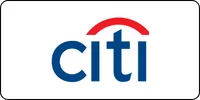




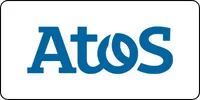

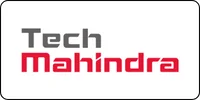















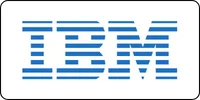

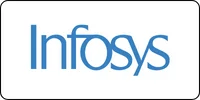




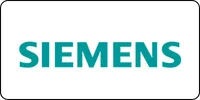
Why Choose CCNP 350-401 ENCOR Certification Course from Bright Computer Education?
CCNP 350-401 ENCOR courses are expertly designed to provide a deep, hands-on, and certification-oriented learning experience for networking professionals aiming to strengthen their core enterprise networking skills. Whether you’re planning to Learn CCNP 350-401 ENCOR in Vadodara, starting your journey with CCNP 350-401 ENCOR for beginners in Vadodara, or advancing your knowledge through Advanced CCNP 350-401 ENCOR training in Vadodara, these programs cater to learners at every level. The curriculum covers essential topics such as dual-stack architecture (IPv4 and IPv6), virtualization, infrastructure, network assurance, security, and automation. With real-world lab environments, expert mentorship, and exam-focused training, students gain the confidence and expertise to succeed in both the CCNP certification and high-level enterprise networking roles.

Designed Curriculum
Our curriculum covers everything from basic to advanced topics. Topics include variables, data types, control structures, functions, OOP, STL, and more.

Hands-on Learning
Dive into practical exercises and coding projects that reinforce learning and help you build real-world applications.

Experienced Instructors
Learn from industry experts with years of experience in C programming and software development.
Flexible Learning
Choose from flexible scheduling options, including self-paced learning or live virtual classes to fit your busy lifestyle.
Career Development
Gain valuable skills sought after by employers in various industries, from software development to embedded systems and beyond.
Interactive Learning
Engage with fellow learners and instructors through live Q&A sessions, discussion forums, and collaborative coding exercises.
Diverse Career Opportunities in CCNP 350-401 ENCOR: Exploring Paths in India's Technology Sector
The CCNP 350-401 ENCOR (Implementing Cisco Enterprise Network Core Technologies) course is a core requirement for Cisco’s professional-level certifications. It focuses on enterprise networking fundamentals, including dual-stack architecture (IPv4 and IPv6), virtualization, infrastructure, network assurance, security, and automation.
In India, CCNP ENCOR-certified professionals typically earn between ₹8–20 lakhs per annum, depending on experience and organizational role. The certification is in high demand across IT services, data centers, telecom companies, cloud providers, and large enterprises managing complex networks.
Internationally, in markets such as the U.S., UK, Canada, UAE, and Australia, certified professionals earn between $95,000 to $135,000 annually. The CCNP ENCOR certification qualifies professionals for mid-to-senior-level roles like Network Engineer, Enterprise Network Architect, Infrastructure Lead, and IT Consultant.
Additionally, ENCOR is a prerequisite for Cisco’s prestigious CCIE Enterprise certification, making it a crucial milestone for networking professionals aiming for advanced expertise and leadership roles.
Frequently Asked Questions
Recently View Courses
Course Details Curriculum Placement FAQ’s AWS Certified Solution Architect Associate Course The AWS Certified Solutions...
Read MoreCourse Details Curriculum Placement FAQ’s AWS Certified Cloud Practitioner Course The AWS Certified Cloud Practitioner training...
Read MoreCourse Details Curriculum Placement FAQ’s RHCE-Red Hat Certified Engineer Training Course Looking to take...
Read More
